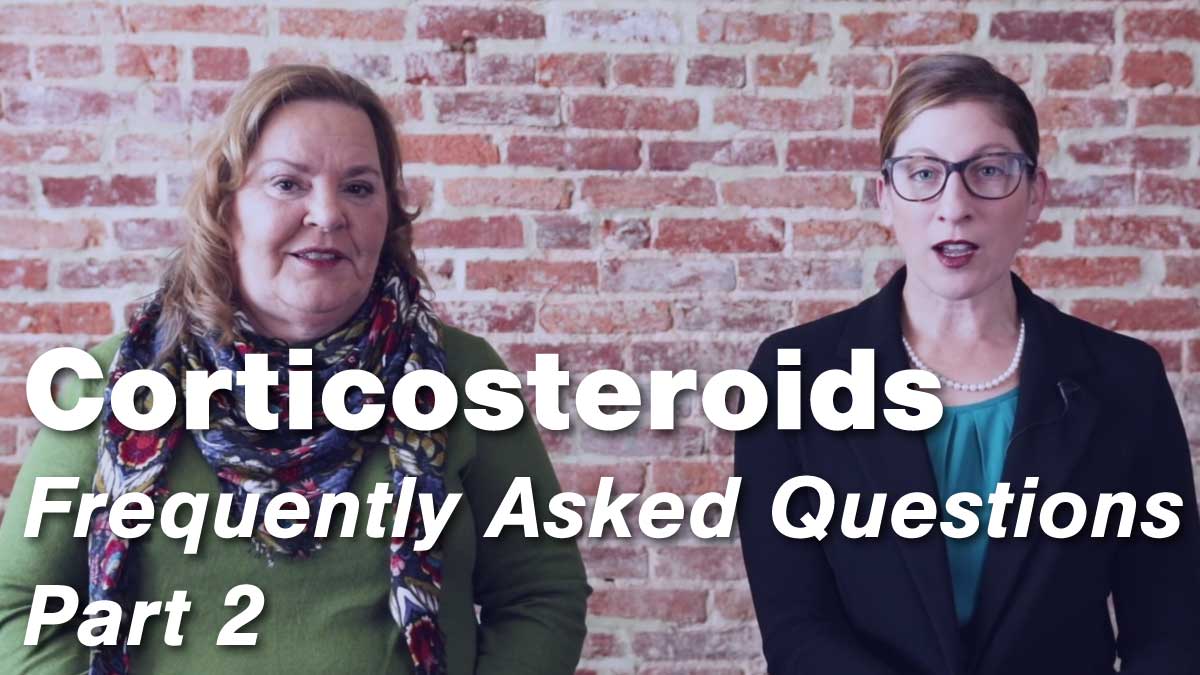
Corticosteroids can be extremely beneficial in decreasing inflammation and allergic reactions. In part two of this two-part FAQ video, Dr. Rebecca Manno and Vicky Ruffing, RN-BC answer frequently asked questions about corticosteroids.
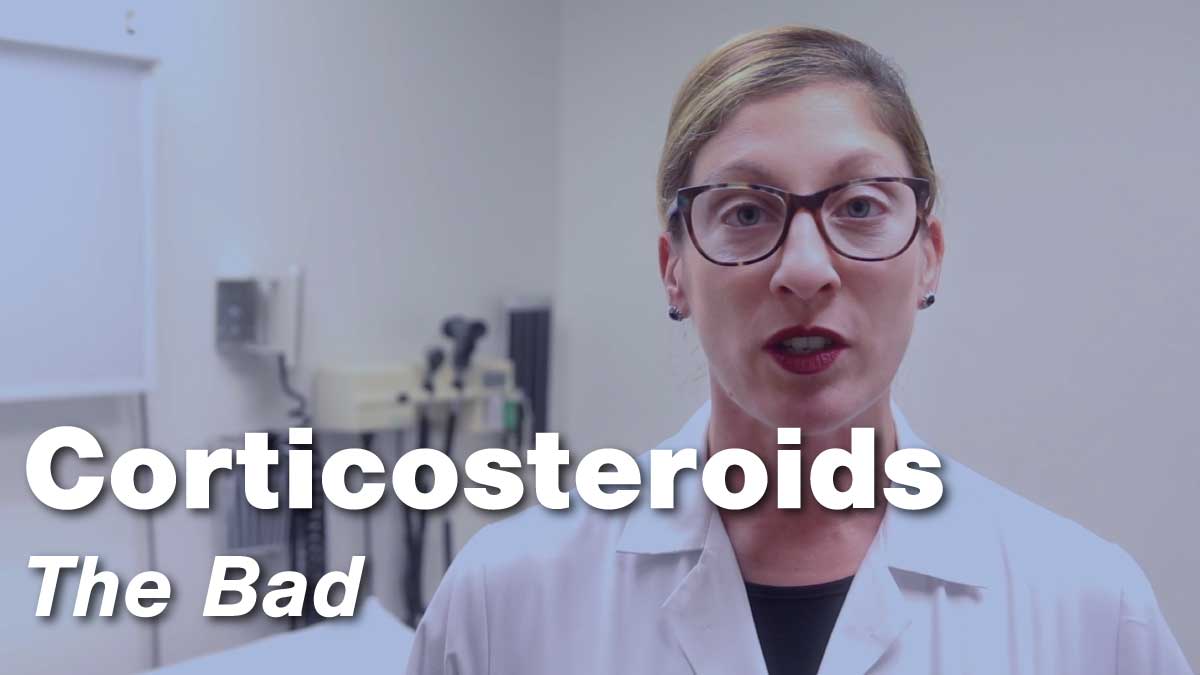
While corticosteroids are a great tool for decreasing inflammation and allergic reactions, some patients may experience side effects. It is important to communicate with your doctor about any negative effects that you may experience. In this video, Dr. Rebecca Manno explains what to look out for while taking corticosteroids.
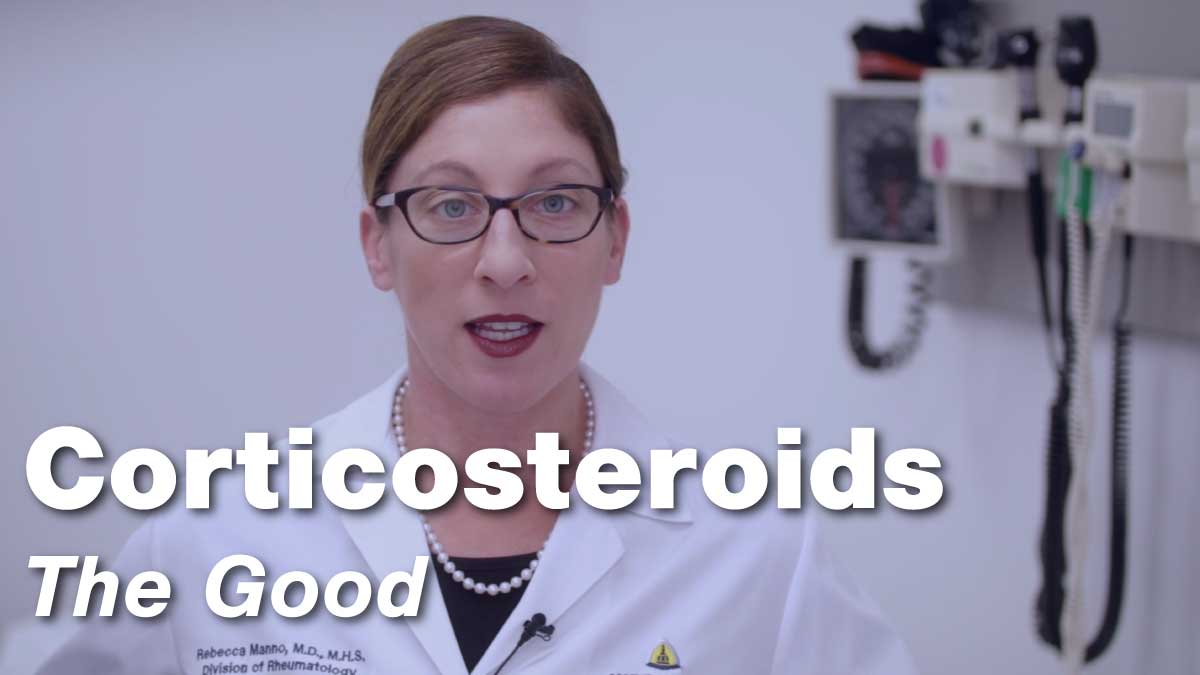
There are many benefits to taking corticosteroids for arthritis pain, and they can be prescribed in administered in several ways: oral, intravenous (IV), topical, inhaled, or injection. In this video, Dr. Rebecca Manno explains what corticosteroids are, how they’re prescribed, and the benefits of taking them.
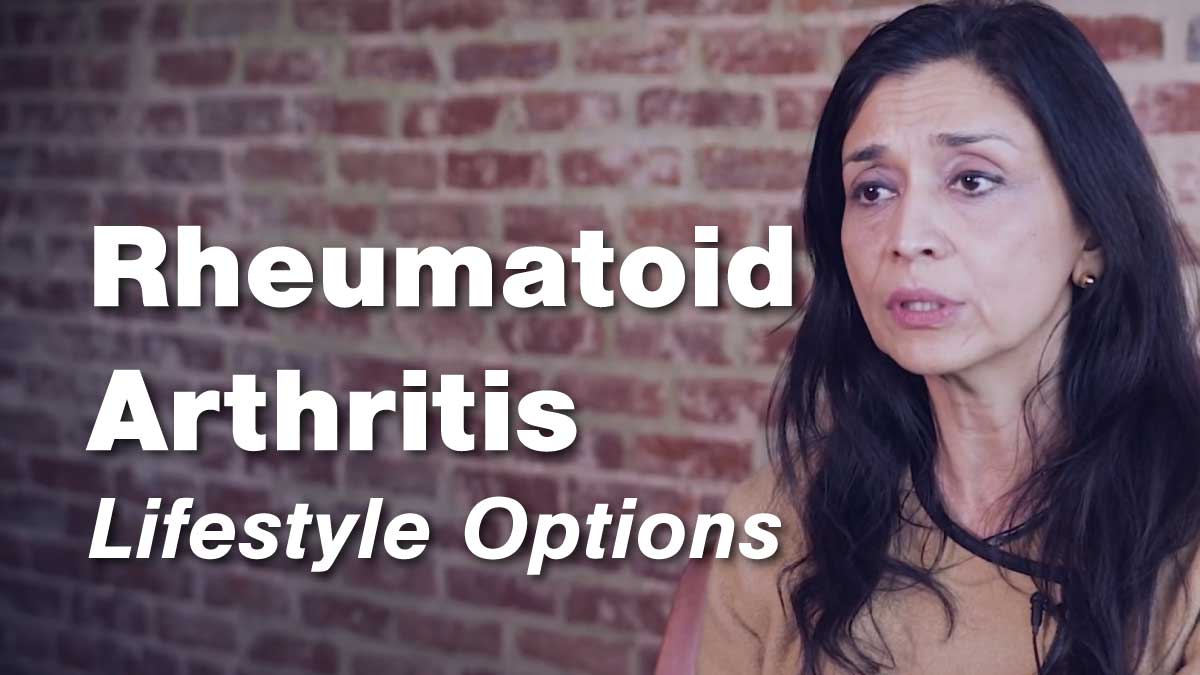
Exercise, eating well, and speaking openly with a rheumatologist can help prevent flares and strengthen joints. In our final episode on Rheumatoid Arthritis, Dr. Uzma Haque, a physician at the Johns Hopkins Arthritis Center, talks about the dangers of elimination diets and the benefits of stretching and exercise.
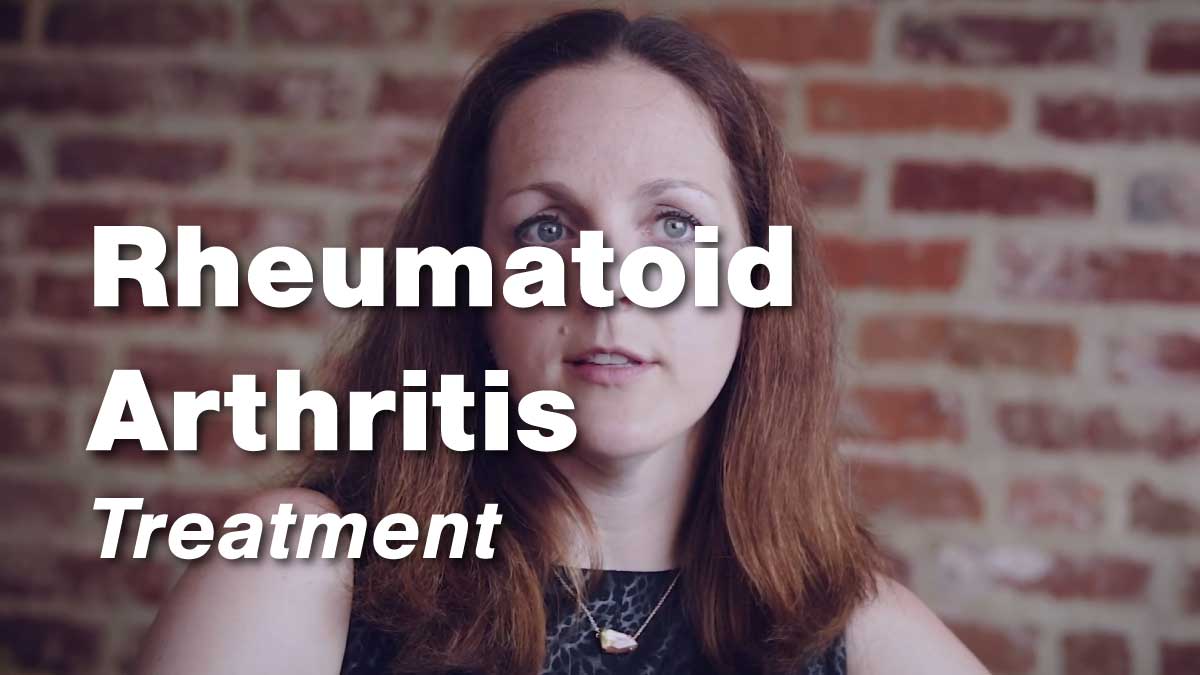
While there’s no cure for Rheumatoid Arthritis yet, there are many preventative medications. They range from oral pills to injections that can be done at home or by a doctor, which are working for many people who have been diagnosed. All these different treatment options can help patients achieve their goals and stay healthy and functional. In this video, Dr. Laura Cappelli, a physician at the Johns Hopkins Arthritis Center, discusses the different treatment options for Rheumatoid arthritis.